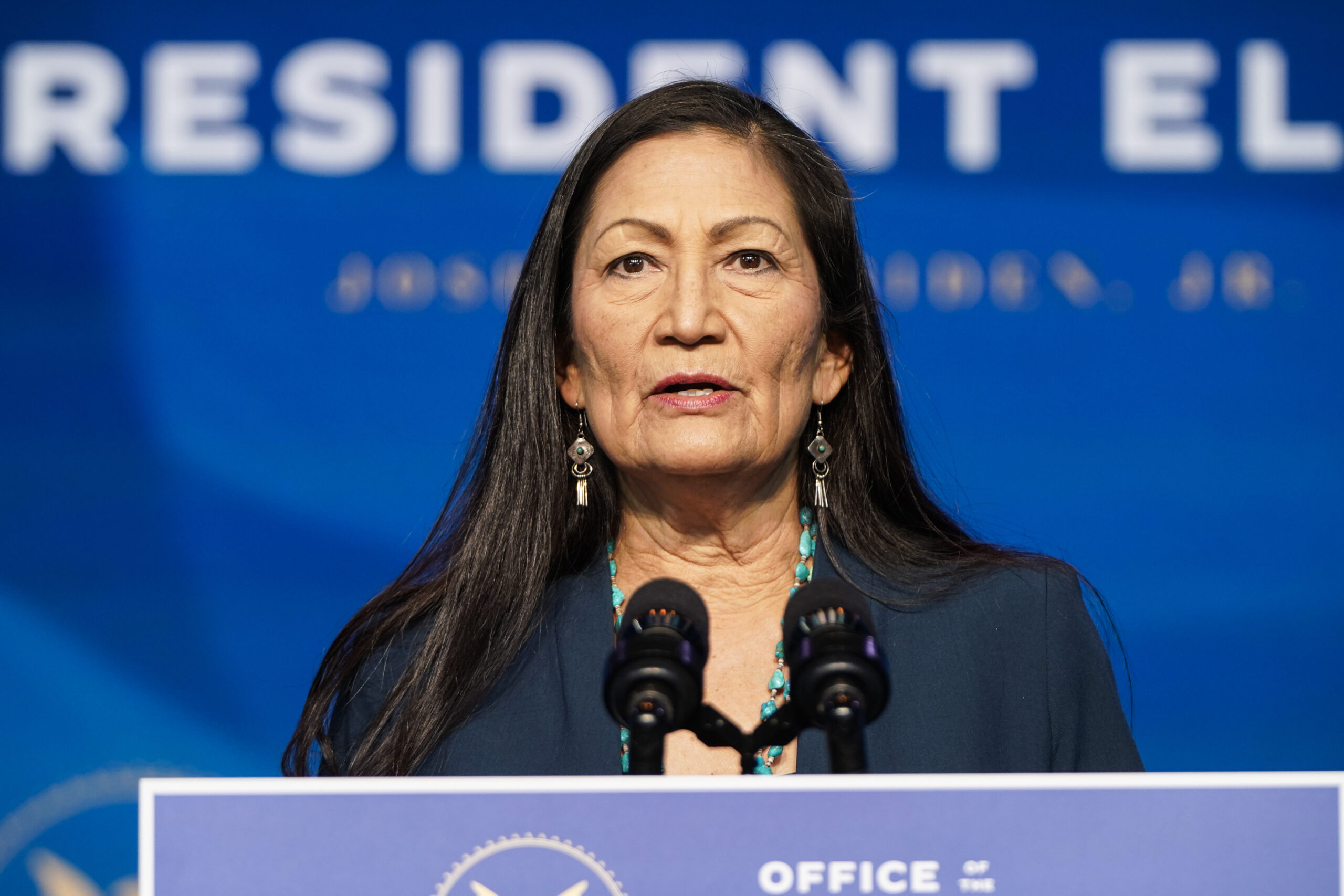
The first Native American to serve as a cabinet secretary, Deb Haaland arrived in Washington D.C. via New Mexico. She is a 35th-generation New Mexican, and a member of the Puebla of Laguna.
Haaland grew up in a military household, bouncing around between 13 different schools while her parents served in the armed forces. Her father was a combat veteran Marine, and her mother was a Navy veteran who went on to work for the Bureau of Indian Affairs. Driven to make a difference in her country’s approach to climate change and other environmental affairs, Halaand put herself through law school so she could jump head-first into a career of service. She now sits in the Biden administration’s cabinet.
Leading the Department of the Interior, which has been used in the past as a tool to directly oppress America’s Indigenous People, carries a heavy symbolism. Haaland now heads the department that is tasked with managing natural resources, endangered species, and public land, as well as the relationships between the U.S. government and the governments of individual Native American tribes.
Haaland refers to climate change as the “challenge of our lifetime,” and has been pushing President Biden to hold true to his pledge to make America carbon neutral by 2050. Aside from championing environmental causes from the cabinet, she finds ways to challenge herself outside of breaking government barriers. This year, the 60 year old ran the Boston Marathon.
“I started running about 20 years ago," Haaland wrote for the Boston Globe. However, her motivation for marathon training comes from a far deeper place than ambitious cardio goals. “I run because my ancestors gave me this ability," she explained. Through her participation in the Boston Marathon, Haaland was able to bring more awareness to Indigenous People’s Day: "Indigenous People’s Day is also a day when we remember the sacrifices of our ancestors and their survival during the dark eras of colonization and assimilation,” she continued.
Her words were echoed in a statement by President Biden—the first time a President acknowledged Indigenous People’s Day. Biden also issued a separate statement bringing awareness to the “wrongs and atrocities” that European explorers inflicted upon native populations.
